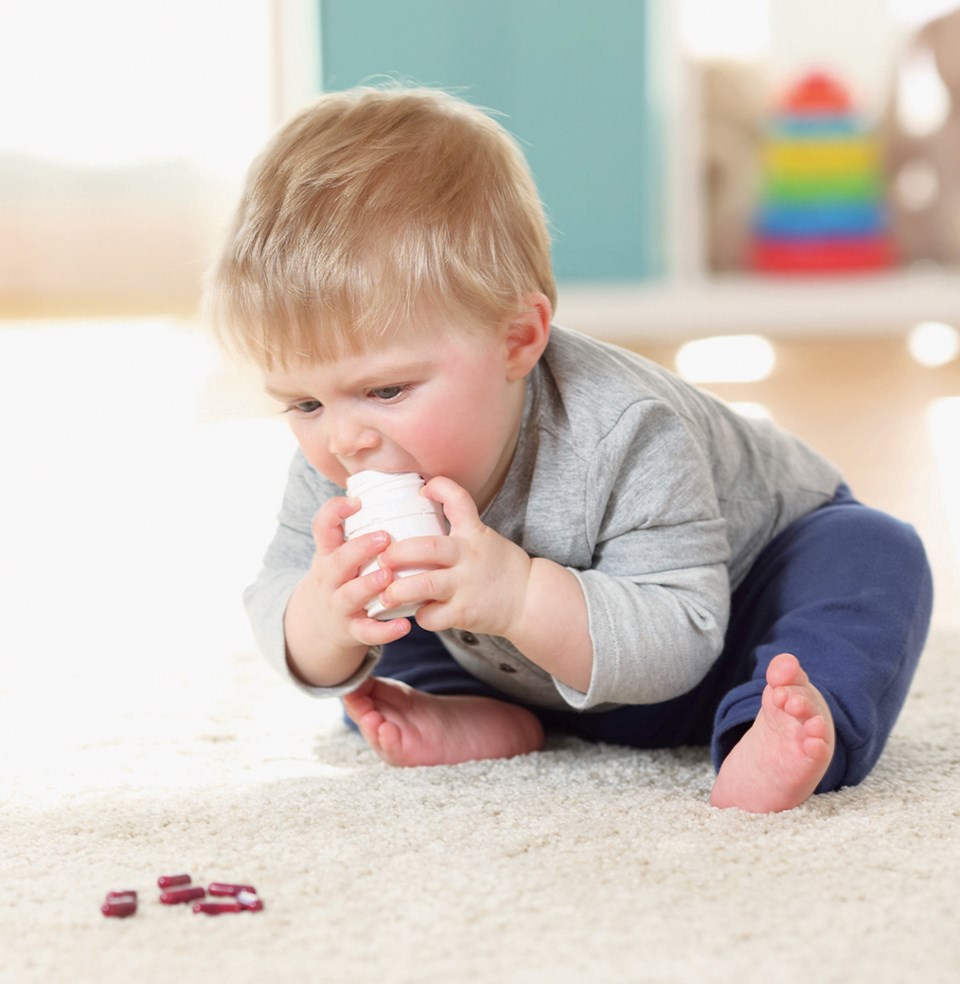There are numerous household products, some of which might seem harmless, that can poison a child if your back is turned. Here are some everyday items that are toxic.
Cleaning products
Bleach, drain cleaners and other household cleaning products should be locked away in a cabinet. Dishwasher and laundry detergent pods are particularly attractive to young children because they look like candy. Unfortunately, if these pods burst, the toxic liquid can get in the child’s eyes, throat and lungs.
Medicines
If swallowed by a child, prescription drugs and pills used to treat fevers and headaches, such as acetaminophen and ibuprofen, can cause symptoms of overdose and trigger organ failure. Never leave medication lying around on a bedside table, bathroom counter or anywhere else a child could find it.
Personal care products
Many beauty and personal hygiene products can be dangerous if swallowed, inhaled or splashed on the skin or in the eyes. These include:
• Antiperspirant
• Toothpaste
• Nail polish remover
• Mouthwash
• Body lotion
• Perfume
Store all of these products in a locked cabinet or out of the reach of children.
Plants
Some types of common houseplants are poisonous including poinsettia, cyclamen, peace lilies, caladium and English ivy. Identify the species in your home and move toxic plants out of reach or give them away.
From alcohol to mosquito repellant, there are many other products throughout your home (including in the garage and shed) that can be harmful to children. The best way to avoid an accident is to ensure all poisons are safely stored.
If a child in your care has swallowed or been in contact with a dangerous substance, call your provincial poison control centre. In an emergency, dial 911.



